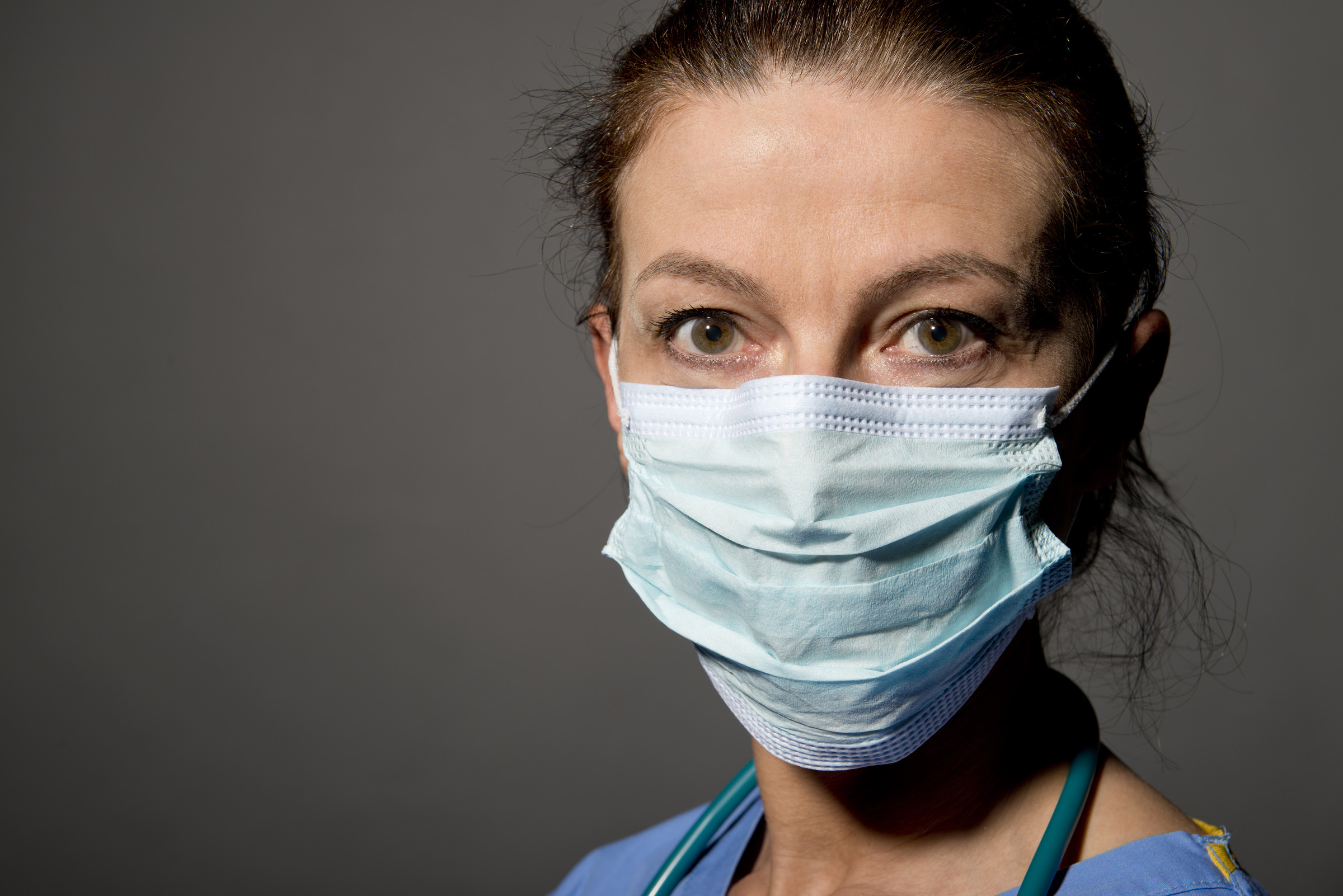US doctors being exposed to COVID-19 because they don't have protective gear
And they are risking infecting their patients along the way.

The doctors and nurses on the front lines of the coronavirus pandemic are putting themselves at unnecessary risk due to the national shortages of protective gear. They also fear they are infecting their patients, according to an investigative report by ProPublica.
One emergency room (ER) physician in Amite, Louisiana, John Gavin tested positive for COVID-19 (the disease caused by the novel coronavirus) on March 9, days after he had been working in the ER without the proper protective equipment, he told ProPublica. In that time, he said, "I'm sure I exposed everybody I saw." (Gavin said things were so bad that the water was actually cut off at one point in early March.)
In Italy, 9% of the COVID-19 cases as of March 15 occurred in health-care workers, the journal JAMA reported March 17, according to ProPublica. However, the study doesn't say whether those doctors were exposed to the virus at home versus at their workplace.
Related: Coronavirus in the US: Map & cases
"The risk to our health-care workers is one of the great vulnerabilities of our health-care system in an epidemic like this," Liam Yore, a board member of the Washington state chapter of the American College of Emergency Physicians, told The Washington Post. "Most ERs and health-care systems are running at capacity in normal times."
Shortages of protective equipment are causing confusion and chaos in many other medical facilities as well, Live Science recently reported. Responding to the shortages, the Centers for Disease Control and Prevention (CDC) loosened its guidelines for such protective wear, suggesting health workers could don conventional surgical masks rather than the N95 respirators known to help keep the virus out. This week, according to ProPublica, the CDC said that when no masks are available, health workers could "use homemade masks" such as a bandanna or a scarf.
Propublica spoke with 65 medical providers, with 31 of them saying "they felt as though they were being asked to take measures that made them uncomfortable, such as reusing protective masks." And 29 of those providers noted supply shortages as one of the reasons for that concern.
Get the world’s most fascinating discoveries delivered straight to your inbox.
Medical workers in Washington, Ohio, New York, Connecticut, Oregon, Illinois, Texas and California told ProPublica that hospitals there have loosened guidelines for protecting providers when working with symptomatic patients. For instance, whereas initially they were told to wear N95 respirators and other sealed face masks, they are now being told to wear surgical masks in those same situations. Those hospitals have even locked up the N95 masks to ensure they're available in dire situations where a patient needs to be intubated, ProPublica reported.
Some hospitals, ProPublica reported, have gone so far as to recommend health care workers reuse disposable masks that are meant to be used once to reduce the risk of contamination, and in turn infection.
Read more at ProPublica.
Coronavirus science and news
- Coronavirus in the US: Map & cases
- What are the symptoms?
- How deadly is the new coronavirus?
- How long does virus last on surfaces?
- Is there a cure for COVID-19?
- How does it compare with seasonal flu?
- How does the coronavirus spread?
- Can people spread the coronavirus after they recover?
Originally published on Live Science.
- The 9 Deadliest Viruses on Earth
- 28 Devastating Infectious Diseases
- 11 Surprising Facts About the Respiratory System
The one-month trial gives you access to all of the educational site's 9,000 activities in reading, science, math and art. Keep your child busy and learning while we are all stuck indoors.
Jeanna Bryner is managing editor of Scientific American. Previously she was editor in chief of Live Science and, prior to that, an editor at Scholastic's Science World magazine. Bryner has an English degree from Salisbury University, a master's degree in biogeochemistry and environmental sciences from the University of Maryland and a graduate science journalism degree from New York University. She has worked as a biologist in Florida, where she monitored wetlands and did field surveys for endangered species, including the gorgeous Florida Scrub Jay. She also received an ocean sciences journalism fellowship from the Woods Hole Oceanographic Institution. She is a firm believer that science is for everyone and that just about everything can be viewed through the lens of science.



